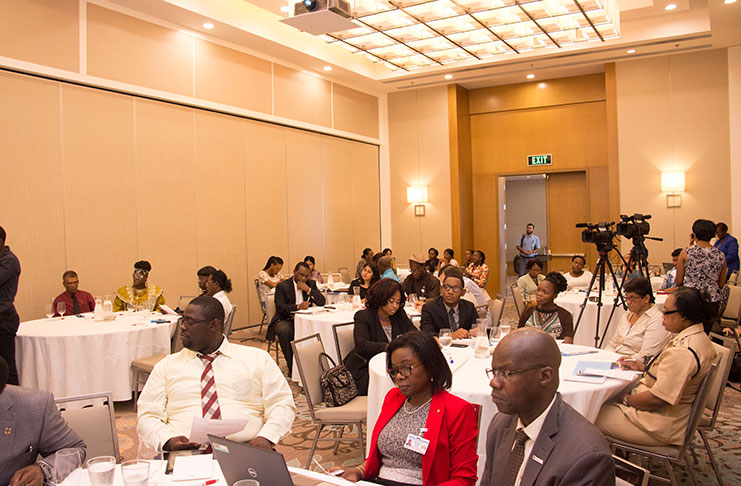–Health Minister calls for multi-sectoral approach to tackle problem
By Alexis Rodney
THE Public Health Ministry is calling on the various public sectors agencies to join the fight against Non-Communicable Diseases (NCD) in children and adolescents.
Public Health Minister, Volda Lawrence, made the appeal on Wednesday during a consultation with non-governmental organisations at the Marriot International Hotel in Kingston here in the city.
The consultation was held under the theme, “Strengthening community support groups to address NCDs in children and adolescents”.
According to Minister Lawrence, NCDs have reached epidemic proportions globally, and have become the world’s single highest cause of mortality, accounting for 60 per cent or 35 million deaths globally per annum.
Some 80 per cent of these deaths reportedly occur in lower and middle-income countries, and they are projected to increase by 17 per cent in the next 10 years.

According to the minister, Guyana’s situation seems to reflect the global trend, since there is a growing incidence of NCDs, such as diabetes, cancers, chronic respiratory diseases and cardio-vascular diseases among children here.
In addition, she said, there are mental health and accidents occurring at home and on the road.
These, she said, are major causes of morbidity and mortality among children, added to which is the prevalence of childhood obesity, depression, misuse and abuse of drugs and suicide.
“Statistics globally are disturbing,” the minister told the consultation.
She noted that in 2002, there were some 1.2 million deaths in people under the age 20, accounting for over 13 per cent of all NCD deaths under 60 years.
Statistics show, Lawrence said, that more than half of all adults begin to be affected by NCDs very early in childhood, and that the vast majority of behaviours and addiction that underlie NCDs begin during adolescence.
Data from the Guyana Global School Health Survey 2010 revealed that 15.6 per cent of students 13-15 years of age were overweight; that 7.5 per cent of them were underweight; and another 4.5 per cent were obese.
It was found, too, that in many cases, intake of fruit and vegetables was minimal, in that about 70 per cent drank carbonated drinks; 2.1 per cent indulged in alcohol regularly; and 32 per cent did so occasionally over a 30-day period of the survey.
What was telling also was that some 79 per cent of schoolchildren were found to have had their first alcoholic drink before age 14.
The Guyana Global Youth Tobacco 2015 Survey showed that 14.8 per cent of the student population used tobacco products (boys 19 per cent; girls 10.4 per cent).
More recent figures, however, show that 11.7 per cent of the student population currently smoke tobacco-related products (boys 16.1 per cent; girls 7.5 per cent), while another 8.6 per cent have a marked preference for cigarettes (boys 13.3 per cent; girls 3.8 per cent).
According to Minister Lawrence, global/national trends indicate that NCD-related behaviours are on the rise and are difficult to change.
Presenting a way forward, the minister said there is need to continually address the needs of the youth, in the context of NCDs and in the region of the Americas, given the trends.
She said, too, that there is also need for participation and intervention at all levels; a multi-sectoral approach of sorts, to delay the onset of NCDs, and by extension compress the period of morbidity.
Other areas of focus that could address the issue include policy development and implementation; strategic initiatives for NCDs; and cost-effective measures.



.jpg)









